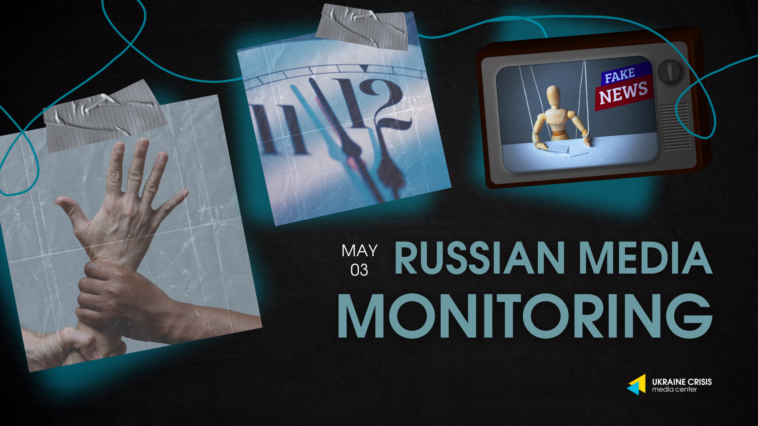Written by Matt Wickham UCMC/HWAG analyst
Russian propaganda seeks to depict human rights in Ukraine as deteriorating, portraying the government as being out of control and suggesting that Ukraine is no longer committed to democratic principles following its derogation from the European Council of Human Rights. However, it’s important to recognize that this move is not as unprecedented as the Kremlin attempts to make out. While it is not the preferred course of action, it is considered acceptable during times of extreme national security concern.
Contrary to the claims of Kremlin propagandists, derogation allows states to temporarily suspend certain rights guaranteed by the convention in extraordinary circumstances, such as full-scale war or the imposition of martial law. Ukraine’s measures, such as property seizure, curfews, and restrictions on mass gatherings, to name a few, therefore go against the convention, and so Ukraine is correct in temporarily derogating from the convention.
However, it is important to note that this is intended to address the exigencies of wartime conditions. For example, property seizures may be required for operational security purposes, and curfews can assist authorities in detecting suspicious activity and reducing alcohol-related incidents.
Not a derogation first
While Russian propaganda attempts to portray Ukraine as undemocratic, it’s important to note that even established democracies like the UK have derogated from the ECHR at least eight times, mainly during the troubles in Northern Ireland. France also declared a state of emergency in response to terrorist threats in 2015, temporarily suspending certain rights guaranteed by the convention.
In a misguided attempt to vilify Ukraine as a country with democracy in tethers, Pavel Volkov, a propagandist-journalist, in an interview with Sergey Mardan on Solovievlive, alleges that thousands of Ukrainian oppositionists are being unjustly imprisoned without access to legal representation and are sent to jail without a fair trial.
“You are well aware, as are your viewers, of the thousands of arrests of opposition activists in Ukraine who hold opposing views. Moreover, they are not only arrested, but they are kept in prisons without alternative measures or visits; that is, it violates obviously the right to defence in court because any arguments of the lawyer become kind of meaningless because the person goes to prison without any other option.”
However, the reality is that it is Russia where the conviction rate has remained consistently high, exceeding 99 percent, and experts attribute this, in part, to the persistence of a Soviet-era mentality wherein the presumption of guilt prevails for anyone accused of a crime.
Returns to rhetoric: the Russian language is banned
Since 2014, when it first invaded Crimea and Donbas, the Kremlin has used and abused the rhetoric surrounding the Russian language. Russian officials have repeatedly claimed that they are defending the rights of Russian-speaking nationals, effectively justifying their aggression. Volkov’s repetition of this narrative is designed to discredit the EC and its human rights principles, portraying not only Ukraine as devoid of democratic principles but Europe too.
“It is written in the Ukrainian Constitution that it must safeguard the Russian language. Yet, according to the Ukrainian Language Ombudsman today, he reports that there are only three schools in Ukraine that continue to offer education in Russian. I find this shocking that there are still 3, especially considering official statistics, although we can’t trust that much, which indicate that Russian is considered the mother tongue for 30% of the Ukrainian population, with half of the population being Russian-speaking. And yet, there are only 3 schools. Despite this, Europe remains passive and does not react to it.”
It’s true that Ukraine’s constitution guarantees the free development, use, and protection of the Russian language and other minority languages. Yet, Russia’s war on Ukraine has intensified this linguistic divide, with the Ukrainian people and its government understanding that the Russian language has been a tool for justifying aggression and spreading false information. Volkov uses this rhetoric here in order to further manipulate Ukraine’s democratic standing. However, Ukraine’s derogation from the ECHR has nothing to do with language issues. Rather, it is cynically used by propagandists to portray Ukraine as undemocratic and justify Russia’s hostile actions.
As a result, Volkov on Mardan’s program sought to use Ukraine’s derogation from the ECHR to undermine Ukraine’s commitment to democratic principles, especially at a time when the world is closely scrutinizing its past, present, and future democratic practices as it pursues European Union membership. And let’s not forget, since the establishment of the ECHR, no war of this magnitude involving a member state has ever occurred, putting Ukraine in a rather unprecedented position. And so, contrary to Kremlin claims of deteriorating human rights in Ukraine, temporary derogation from the convention enables the country to effectively address the challenges posed by the Kremlin-created wartime conditions.


